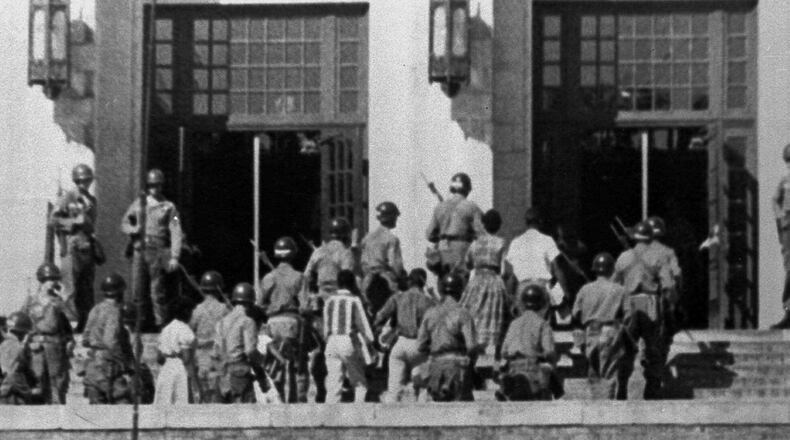A host of resolutions condemning Civil Rights Era milestones are still on the books in Georgia's Legislature, and a state lawmaker is hoping to repeal some of the more egregious ones in the final days of this year's legislative session.
State Sen. Josh McKoon will introduce a trio of measures this week that would reverse some long-forgotten resolutions adopted by Georgia lawmakers in defiance of the march toward integration in the 1950s.
The resolutions themselves are purely symbolic, but the Columbus Republican said they have no place in Georgia’s code.
One would rescind a 1958 resolution that censured President Dwight Eisenhower for federalizing the National Guard to enforce integration at Central High School in Little Rock. The resolution said Eisenhower "sacrificed the honesty and integrity of our highest executive office on an altar of political expediency to appease the NAACP and other radical, communist-sympathizing organizations."
A second would roll back a 1956 resolution that criticized the Justice Department and FBI for "flagrant invasion" into local affairs with an investigation of a black man convicted in a controversial trial of raping a white woman. He was later executed.
And a third targets a 1956 resolution adopted in the wake of the landmark Brown v. Board of Education decision by the U.S. Supreme Court, which Georgia lawmakers declared "null, void and of no effect." The lengthy resolution asserted the right of "interposition," which argued that states could prevent the federal government from enforcing laws or decisions they deemed unconstitutional.
All of these resolutions were passed while Gov. Marvin Griffin was in office. The Democrat orchestrated the 1956 "massive resistance" to integration before a joint session of the Legislature. That was also the year the Legislature put the Confederate battle emblem on the state flag.
A possible candidate for higher office, McKoon is also testing his limits in the Legislature. Spurned by GOP leaders and in his waning days in the state Senate, he's essentially daring his colleagues to take up the proposals.
McKoon's critics might scoff at his measure. He was slammed by immigration groups for backing legislation that would ban driver's licenses for some immigrants. And gay rights organizations saw his push for "religious liberty" measures as little more than legalized discrimination.
McKoon said the early signs are positive: Several leaders from both parties have signed his measures, including Republican Bill Cowsert and Democrat Steve Henson.
About the Author
The Latest
Featured




